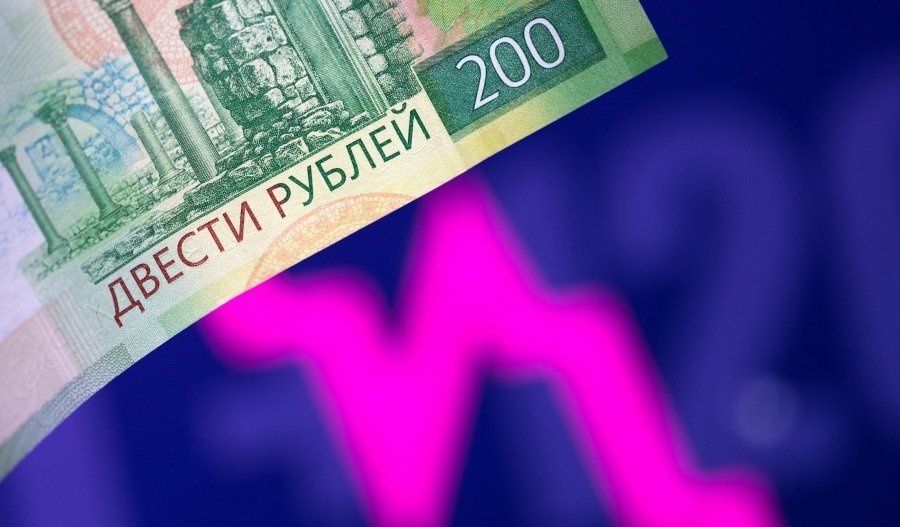
If there is little interest for the United States, for the EU it will be like shooting itself in the foot, says Armin Steinbach, professor of law and economics at the Ecole Supérieure des Commerce.
The West, especially the European Union and the United States, did not respond to the warnings issued by both Russia As well as from friendly to Moscow Countries do not dare tamper with Russian assets.
Representatives of China, Saudi Arabia and Indonesia, among others, have been lobbying in the background for the EU to continue resisting pressure from the United States. United States of America So is he United kingdom To seize Russian state assets that were frozen after the invasion of Ukraine in February 2022, to aid reconstruction efforts in Kiev.
Confiscation of Russian assets will harm the European Union Armin Steinbach, professor of law and economics at the Ecole Supérieure de Commerce in Paris, said in an article published by the French newspaper Figaro that the United States does not care because it will suffer fewer losses.
So it seems it’s time for Russia to respond…
Vladimir Putin signed a decree on the establishment of reparations For any losses in the event of seizure of Russian assets in the United States and Europe.
More specifically, the text of the decree published in the Official Gazette of the Russian Government states that “every Russian citizen has the right to submit an application to the court to prove the fact of unjustified deprivation of his rights to his property, following a decision issued by a state or judicial body.” The United States of America and the European Union, and to demand compensation in the event of losses.
The Russian Federation or the Central Bank may act as rights holder.
In order to obtain compensation, it becomes possible to confiscate the property and then transfer it to the victim.
It is reported that the Italian bank UniCredi and another American bank have already suffered serious consequences…
As RIA Novosti noted, the Russian government must, within four months, amend the necessary laws to implement the presidential decree.
In April, US President Joe Biden signed a law giving the US president the right to seize Russian assets in America and “use” them for the reconstruction of Ukraine.
The so-called repo law allows the head of state to make a decision on expropriation without the approval of Congress.
Putin’s action also coincides with a meeting of G7 finance ministers in Stresa, Italy, where they are discussing a US plan to drain the value of frozen Russian assets.
The US proposal stipulates that future revenues from the Russian Central Bank’s funds amounting to $280 billion – most of which are tied up in Europe – will be used to provide financial aid to Ukraine.
The proposal could bring up to $50 billion in vital financing for Kiev.
G7 leaders are scheduled to make a final decision at their summit on June 13-15.
Changing the legal structure
“Given the current situation, that is“The whole legal structure has to change,” said Paul Feldberg, partner and head of defence, investigations and compliance at Brown Rudnick in London.
“There is no immediately clear way for banks to protect themselves from future claims and recovery actions,” other sources say.
Restitution or clawback refers to any money or benefits that have been awarded, but need to be returned (restitution) due to special circumstances or events, such as money taken as a result of a financial crime, or where there is a provision for executive compensation.
American plan
The truth is that the United States is trying to take more extreme action by giving all Russian money to Ukraine, not just the profits and interest.
Last month, Treasury Secretary Janet Yellen strongly supported the idea.
“It is imperative and urgent that our coalition finds a way to unlock the value of these frozen assets to support the ongoing resistance in Ukraine and long-term reconstruction,” Yellen said.
Legislation to steal Russian assets and move them to Ukraine has been introduced in Congress and has received bipartisan support, but the bills have not yet been signed into law.paternal uncle
About $67 billion of the Russian Central Bank’s money is in the United States, while more than $200 billion is in Europe.
There is a lot at stake
“If there are few US interests at stake, then for the EU it would be like shooting itself in the foot,” analyst Armin Steinbach said.
According to the expert, Moscow’s retaliation will primarily affect European countries.
First, Steinbach noted that the EU has more than €200 billion in Russian foreign exchange reserves, far exceeding the amount held by the United States.
Second, the withdrawal of Russian capital will undermine investor confidence in the European Union as a guarantor of property rights and associated international law, which, according to the author, is not a real concern for the United States.
“This makes Europe the most likely target for retaliation,” the analyst warned.
After launching the special operation, the European Union and the G7 countries froze nearly half of Russia’s foreign exchange reserves, which amount to about three hundred billion euros.
Brussels is discussing ways to use Russia’s frozen assets to finance the reconstruction of Ukraine.
The Kremlin said that making such decisions “would be another step in violating all norms and rules of international law.”
The Foreign Ministry described the “freezing” of Russian assets in Europe as “theft,” noting that the European Union is targeting not only private funds, but also Russian state assets.
www.bankingnews.gr

“Hipster-friendly coffee fanatic. Subtly charming bacon advocate. Friend of animals everywhere.”





More Stories
F-16 crashes in Ukraine – pilot dies due to his own error
Namibia plans to kill more than 700 wild animals to feed starving population
Endurance test for EU-Turkey relations and Ankara with Greece and Cyprus